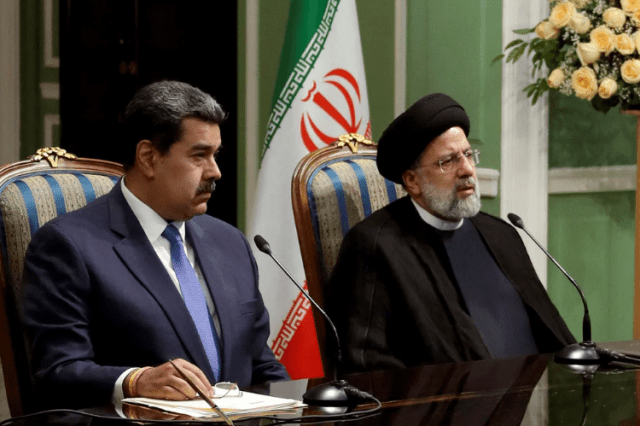
Irán and Venezuela have agreed a 20-year “co-operation roadmap” designed to strengthen bilateral relations between the two oil-rich countries and help them weather US sanctions and political pressure from Washington.
By Argus Media – Bachar Halabi
Jun 12, 2022
The agreement was signed during a state visit to Tehran by Venezuelan president Nicolas Maduro on 10-11 June, his first trip to Irán since President Ibrahim Raisi’s administration took over last summer. The deal, signed by the Iranian and Venezuelan foreign ministers on 11 June, calls for co-operation on politics, culture and economics, including in the oil and petrochemical sectors.
Both countries’ oil industries remain under US sanctions. A much-anticipated revival of the Iran nuclear agreement would see restrictions on Tehran’s oil sector relaxed, but indirect negotiations with the US have stumbled in recent months, and Raisi’s government has begun to face protests over the impact on the economy from soaring inflation.
Iran’s supreme leader Ali Khamenei praised the prospect of closer ties with Venezuela. “The successful experience of the two countries has shown that the only way to counter the heavy pressures and hybrid war of the US is to stand up against it and resist,” Khamenei said.
As part of the co-operation roadmap, a direct flight between Tehran and Caracas will be established from 18 July. Maduro said he hopes this will persuade Iranians to consider Venezuela as a tourist destination. The countries also aim to develop ties in the agricultural sector, and will focus future co-operation on science and technology, Maduro said. Venezuela aims to use Iran’s experiences in “resistance against sanctions and imperialism”, he said.
Oil sector lifeline
Maduro and Raisi attended a ceremony via video link on Saturday during which Iran officially delivered the second of four Aframax oil tankers ordered by Venezuela, according to Iranian news agency Irna. Built by Iranian firm Sadra, the tankers can carry up to 800,000 bl of oil each.
In an interview with Iran’s state-run Spanish language news channel HispanTV the day before, Maduro praised Iran’s help with his country’s dilapidated oil industry and said that Tehran and Caracas “are at the forefront of creating a new world order devoid of US hegemony”.
Iran stepped up its support following an unannounced trip to Caracas by Iranian oil minister Javad Owji last month, during which a deal was signed for Tehran to supply refinery equipment to Venezuela and to help with repairs at state-owned PdV’s 140,000 b/d El Palito refinery.
Irán has also been critical in supporting the recovery in Venezuela’s crude production this year, which according to Argus estimates rose to above 700,000 b/d in January-May from just 470,000 b/d in the same period last year. In a swap for Venezuelan crude, Iran is sending shipments of condensate to dilute and upgrade extra heavy oil supply from the Orinoco belt into an exportable crude grade.
Tracking data from Vortexa indicate that Iran is now also shipping its Iranian Heavy grade to Caracas. At 29.5°API, Iranian Heavy offers a lighter alternative to Venezuela’s 16.2°API Merey grade. It is not clear whether Tehran will carry on with these deliveries to Venezuela, but Raisi pledged yesterday that co-operation in the oil sector will continue.
Venezuelan crude output could recover further if PdV’s joint-venture partners, notably Chevron, resume operations that have been restricted by US sanctions since 2019. The White House said last month that it will give Chevron more leeway to negotiate its future operations in Venezuela.
…
Read More: Argus Media – Irán and Venezuela sign 20-year co-operation deal
…

